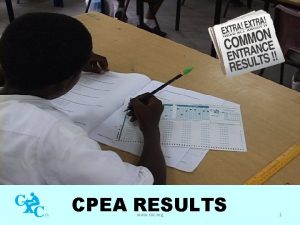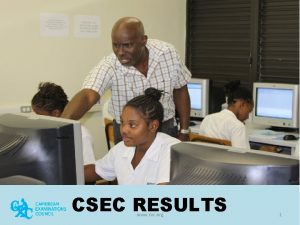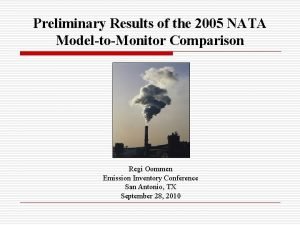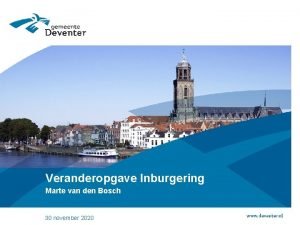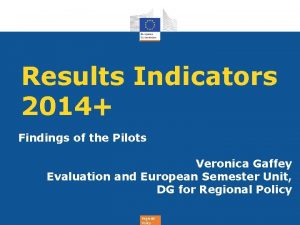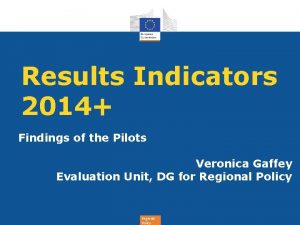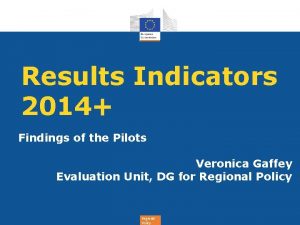Results Indicators 2014 Findings of the Pilots Veronica







- Slides: 7

Results Indicators 2014+ Findings of the Pilots Veronica Gaffey Evaluation and European Semester Unit, DG for Regional Policy

Pilots • Involved 23 Managing Authorities in 15 Member States • Updated Report contains 15 Case Studies of the Pilots: • • France: Aquitaine, Martinique, Rhône-Alpes Greece: Macedonia-Thrace, Transport Hungary: Centre Italy: Marche and Sardegna Latvia: Promotion of Entrepreneurship Poland: Pomorskie Romania: Regional Operational Programme Slovakia: Regional Operational Programme and Competitiveness • Spain: Galicia • Sweden: Skane-Blekinge Regional Policy

Questions for the Pilots • What change to you wish to achieve with this priority? • What indicator can capture this change? • Do you know the baseline for 2007 or now? • Will your output indicators contribute to change in the result indicator? How? • Could you evaluate it? How? Regional Policy

Learning 1. New approach feasible, but not without significant change in mindsets & practice 2. No pilot region uses the new approach 3. Indicators mostly do not reflect the intended effects of the priorities 4. Results focus must be part of programme design 5. Result indicators proposed in pilots are not recommendations – see ex ante conditionality. . 6. Concentration a pre-condition & is more than thematic concentration as proposed in Regulations Regional Policy

Learning 7. Decisions on what to fund and what not to fund – political choice 8. With concentration – fewer indicators 9. Result indicators – close to policy but related to more than the supported entities (change for a region/sector) 10. Statistics often will not be appropriate; explore administrative data, specific surveys, benchmarks; use ex ante evaluations 11. Baselines and Targets essential – they can be qualitative or quantitative Regional Policy

Learning 12. Reflect when change can be expected – intermediate results 13. Reflect on how to evaluate: counterfactual, theory based, before and after studies 14. Reflect on “other factors” contributing to results 15. A final point: Indicators do not tell us everything. Evolution of result indicator should prompt debate – not the last word on performance of the policy. Regional Policy

Thank you! Report: http: //ec. europa. eu/regional_policy/sources/docoffic/2 014/working/result_indicator_pilot_report. pdf Regional Policy

